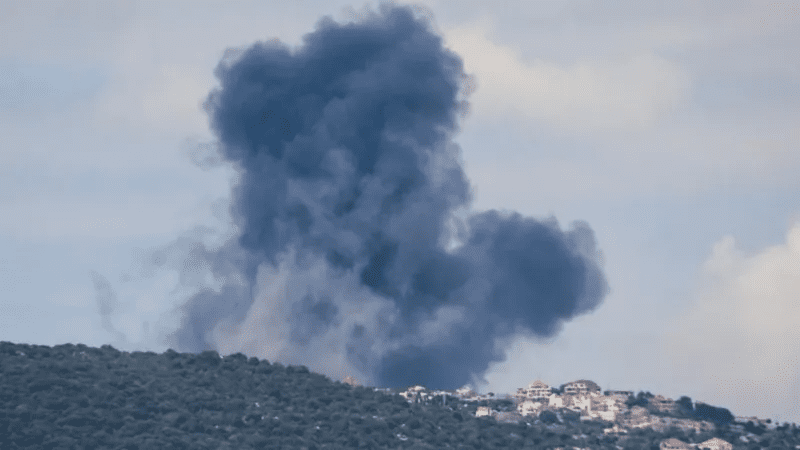Israel has conducted targeted strikes on dozens of Hezbollah rocket launchers and a command center in southern Lebanon, marking the first such escalation since the November 2023 ceasefire agreement. The Israeli military action came in response to rocket fire from Lebanon into northern Israel, the first incident of its kind since the truce was established.

Israeli Prime Minister Benjamin Netanyahu stated that he had directed the Israel Defense Forces (IDF) to “act forcefully against dozens of terror targets.” Lebanon’s state media reported one fatality as a result of the Israeli strikes. The IDF confirmed that three rockets were intercepted over the northern Israeli town of Metula on Saturday morning, with no injuries reported. No group has claimed responsibility for the rocket fire, prompting Lebanese Prime Minister Najib Mikati to warn against Lebanon being drawn “into a new war.”

The November ceasefire had ended 14 months of intense conflict between Israel and Hezbollah, the Iran-backed Lebanese militant group. The United Nations Interim Force in Lebanon (UNIFIL) expressed alarm over the potential escalation of violence, urging both Israel and Lebanon to “uphold their commitments” to the ceasefire agreement.
Local reports from Lebanon indicated that Israeli artillery had targeted several southern locations. The Lebanese army conducted a search operation, uncovering and dismantling “three primitive rocket launchers.” Despite the ceasefire, tensions remain high, with Israel conducting near-daily airstrikes on what it claims are Hezbollah targets, aimed at preventing the group from rearming.
Additionally, Israel continues to occupy five strategic locations in southern Lebanon, a move the Lebanese government condemns as a violation of its sovereignty and the ceasefire terms, which mandated the withdrawal of Israeli troops. Israel argues that its presence is necessary to ensure the security of its border communities, citing the Lebanese military’s failure to fully deploy in these areas.
The recent rocket attack into Israel is likely to increase pressure on the Lebanese government, with Israel using the incident as evidence that Lebanon lacks full control over its border regions. Despite ongoing Israeli strikes, Hezbollah has refrained from retaliating, facing significant challenges in providing financial aid to war-affected communities and enduring pressure from domestic and international opponents to disarm.
Lebanese President Michel Aoun, who assumed office in January, has emphasized that only the state should possess arms, a statement widely interpreted as a critique of Hezbollah’s military capabilities. Lebanon’s international partners have conditioned their support on the government’s efforts to curb Hezbollah’s influence.
Hezbollah initiated its campaign against Israel on October 8, 2023, in solidarity with Palestinians in Gaza following Hamas’s attacks on southern Israel the previous day. The conflict escalated into a full-scale Israeli air campaign across Lebanon, the targeted killings of Hezbollah leaders, and a ground incursion into southern Lebanon. The war resulted in approximately 4,000 Lebanese casualties, including many civilians, and displaced over 1.2 million residents.
Israel’s primary objectives in its conflict with Hezbollah were to facilitate the return of 60,000 displaced northern residents and to remove the group from border areas. The recent violence underscores the fragility of the ceasefire and the ongoing volatility in the region.




